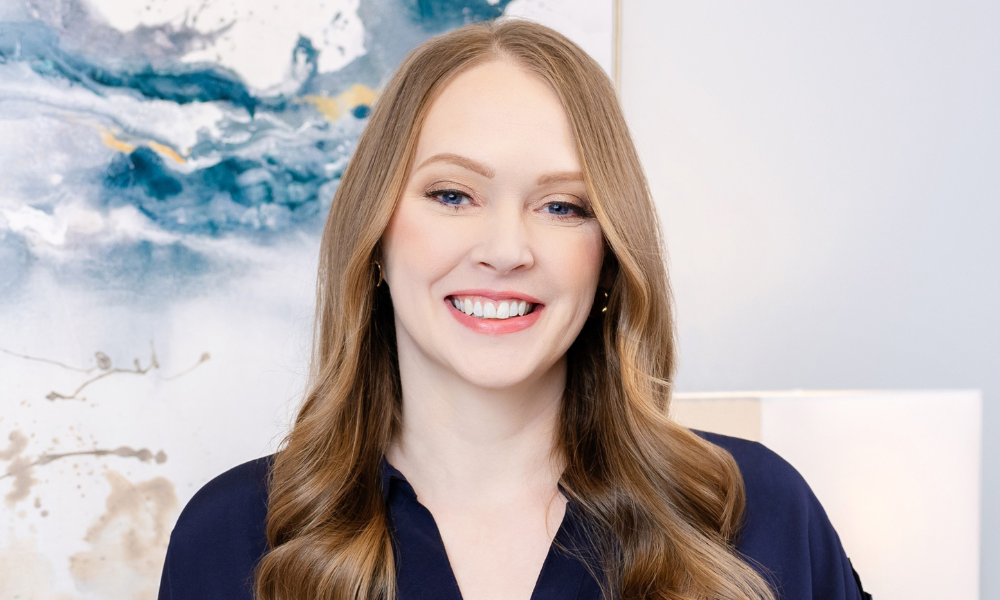

While artificial intelligence could reshape new graduates' prospects of making it into the wealth industry, the impact is likely to be limited – as long as they focus on their human competencies and critical thinking skills.
That's the core conviction that makes Hannah Moore, founder and CEO of Amplified Planning, hopeful even as AI threatens the job market's newest entrants.
"I do think AI is going to have an impact on wealth management," Moore told InvestmentNews in an interview. "I think we're going to be maybe a little bit delayed compared to other fields, just because of some of our legacy systems that are still being used."
In a recent global survey of students and new graduates, the CFA Institute found 37% saw finance as a top career choice, but two-thirds of respondents believed the emergence of AI could make it harder to land a job.
The AI effect on new and recent grads could already be setting in within the US. A recent report by CBS News pointed to data from the New York Federal Reserve showing a 5.8% unemployment rate for degree holders aged 22 to 27 as of March, outpacing the overall jobless rate of 4% during the period. Separate reporting by the Wall Street Journal held up the 6.6% unemployment rate among new college graduates seeking jobs for the 12-month period ending in May, ahead of the overall national unemployment rate of roughly 4%.
While Moore doesn't see a drastic effect on the wealth space, she agrees that the most basic pieces of advisory and financial planning work may eventually get automated away.
"It's not just going to be on the data entry side," she says. "Perhaps some paraplanning roles will get automated as well. Notetaking is getting automated ... that's very real."
Beyond training aspiring financial planners through her ongoing Externship program, Moore recently led a task force of experts at the Financial Planning Association to create a new competency model for financial planners. As part of that work, she says they examined the traditional expectations of what makes great financial planners, and considered what skills and attributes would truly stand the test of time.
"The question I'd get from new planners was 'How do I become a better financial planner?' And the answers people gave them was always to get your CFA designation or other credential," she says. "But when you talk to experienced financial planners, they'd always say that's the table stakes."
Among the six core domains in the FPA's competency model, Moore maintains critical thinking will only become more important with the rise of AI in the workplace. Aside from being able to effectively engage with AI and seeing how it can improve their workflow, firms and advisors have to be able to interrogate and dissect the output they get back from algorithms.
"It's easy to stand behind the curtain, put information in, and get an output. But at the end of the day, our job is to stand in front of a client and make a recommendation," she says. "The clients can say 'Why? Tell me more.' And if you just took an output at face value, you're not going to be able to engage in that in a meaningful way."
The FPA competency model also stresses interpersonal impact and client communication, which Moore stresses are crucial when it comes to briding the action gap in financial planning. Even though advisors are spoiled for choice when it comes to financial planning software, she says the real work is in actually getting clients to change their behavior based on recommendations.
"The number one indicator to determine whether a client implements their financial plan is the rapport they have with their financial planner," Moore says. "With AI, we still have this implementation gap. And it's the human connection that bridges that gap."
To have a fighting chance in today's market, Moore says aspiring planners have to stop seeing number-crunching as their strong suit. That means having a good mix of analytical and soft skills – developing sharp critical thinking with the EQ to match.
When it comes to training, she also encourages the industry to shake off its fixation on knowledge and designations, and "train for behavioral skills from day one." And while it may be tempting to just offload basic work like notetaking to the robots, she insists on having aspiring financial planners within her own training programs do that basic work.
"We're not giving them the out of using a meeting notetaker, because it's such an important developmental skill set," Moore says. "Over and over, we hear about new planners sitting in on a meeting for the first time, and they're flooded with infomation. ... If you're not forcing yourself to understand what's being discussed, reorganize the information after, and come up with an action for the client, you're short-circuiting your learning."

By listening for what truly matters and where clients want to make a difference, advisors can avoid politics and help build more personal strategies.

JPMorgan and RBC have also welcomed ex-UBS advisors in Texas, while Steward Partners and SpirePoint make new additions in the Sun Belt.

Counsel representing Lisa Cook argued the president's pattern of publicly blasting the Fed calls the foundation for her firing into question.

The two firms violated the Advisers Act and Reg BI by making misleading statements and failing to disclose conflicts to retail and retirement plan investors, according to the regulator.

Elsewhere, two breakaway teams from Morgan Stanley and Merrill unite to form a $2 billion RIA, while a Texas-based independent merges with a Bay Area advisory practice.
Orion's Tom Wilson on delivering coordinated, high-touch service in a world where returns alone no longer set you apart.
Barely a decade old, registered index-linked annuities have quickly surged in popularity, thanks to their unique blend of protection and growth potential—an appealing option for investors looking to chart a steadier course through today's choppy market waters, says Myles Lambert, Brighthouse Financial.
